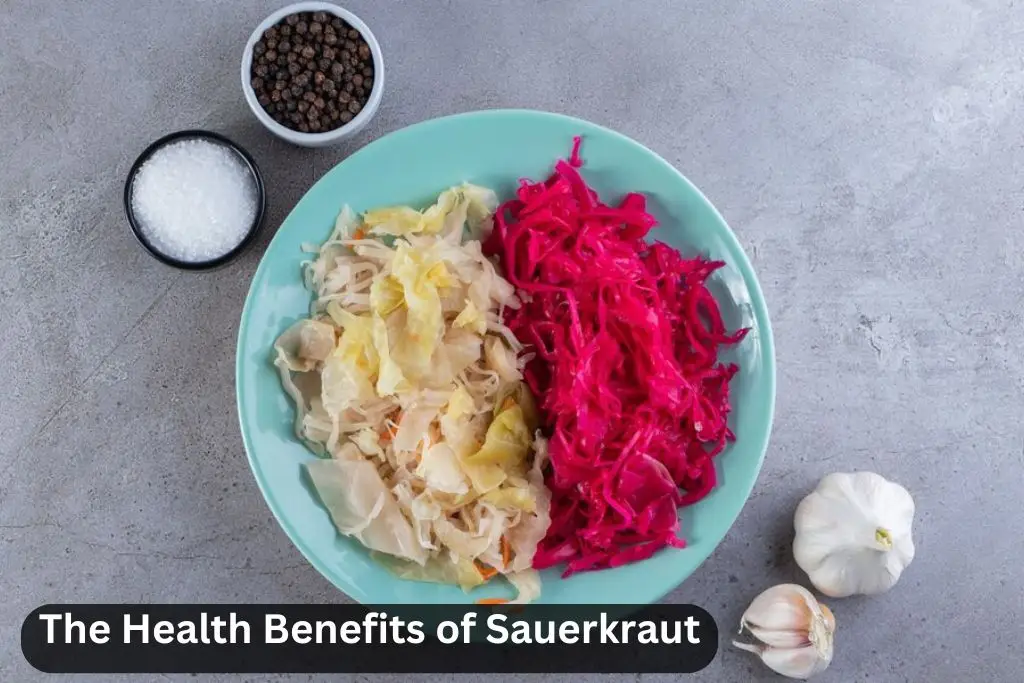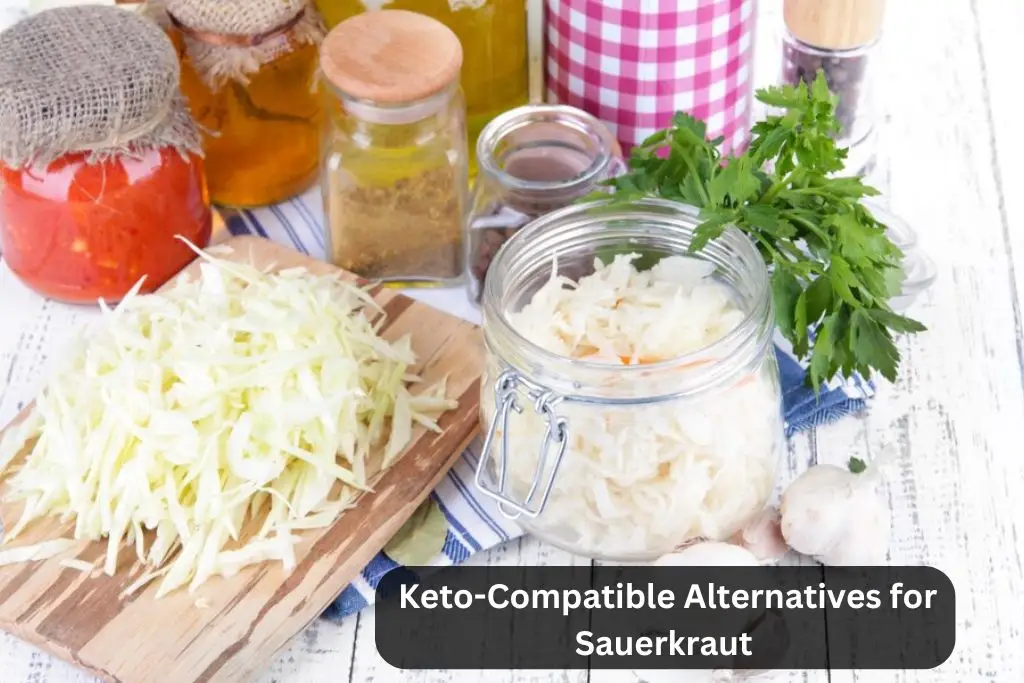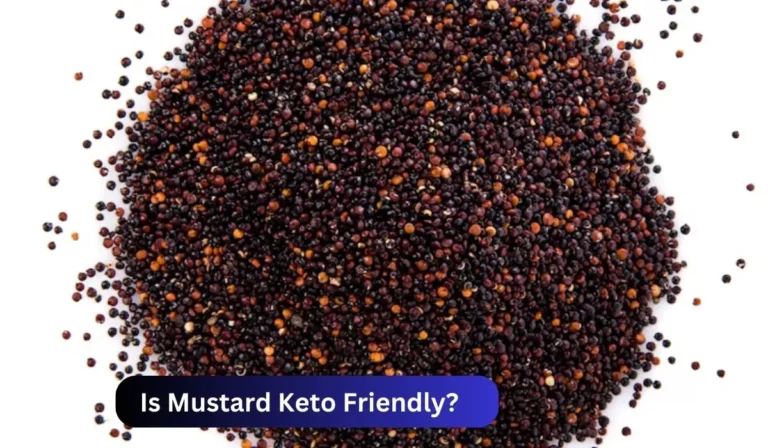Is Sauerkraut Keto Friendly? Benefits and Guidelines
If you’re following the keto diet, you might wonder, “Is sauerkraut keto-friendly?” The answer is a resounding YES! Sauerkraut, made from fermented cabbage, is not only tasty but also packed with benefits.
There are some surprising facts about this tangy food that you might not know. Let’s dive into the basics and explore sauerkraut’s nutritional value and why it’s an excellent addition to your keto meal plan.
Is Sauerkraut Keto-Friendly?
Yes, sauerkraut is keto-friendly. It fits well into the ketogenic diet with only 1.38 grams of net carbs per 100 grams.
Sauerkraut is highly nutritious, containing Vitamin C, Vitamin K1, iron, manganese, and probiotics. It can be a great addition to your keto diet as a side dish or a main meal.
The minimal carbohydrate content of sauerkraut makes it an ideal keto-friendly food. The ketogenic diet focuses on consuming few carbohydrates, prompting the body to use fats as fuel.
Sauerkraut’s low carb content, at just 1.38 grams per 100 grams, is well within the limits for most keto diets.
Understanding Sauerkraut and Keto
The ketogenic diet is low in carbohydrates and high in fat, designed to shift the body’s metabolism from carbs to fat.
A key aspect of ketosis is consuming minimal carbs. This is where sauerkraut shines. With just 1.38 grams of net carbs per 100 grams, sauerkraut is perfect for a keto diet.
Nutritional Breakdown of Sauerkraut
Sauerkraut is not only low in carbs but also rich in essential nutrients. A 100-gram serving contains:
- Carbohydrates: 4.3g (2.9g dietary fiber, net carbs 1.38g)
- Protein: 0.9g
- Fat: 0.2g
- Calories: 19 kcal
- Vitamin K1: Over one-third of the recommended daily intake
- Vitamin C: Supports immune health
- Iron: Beneficial for blood health
- Manganese: Essential for bone health and metabolism
- Probiotics: Good for gut health
These nutrients make sauerkraut a nutrient-dense food that supports overall health and fits perfectly into a keto diet.
The Health Benefits of Sauerkraut
Rich in Probiotics
Sauerkraut is rich in probiotics, which are live microorganisms that help maintain a healthy balance of gut bacteria. A healthy gut is essential for digestion, a strong immune system, and even mood regulation.
The fermentation process fills sauerkraut with beneficial bacteria, making it a great choice for gut health.
Packed with Vitamins and Minerals
Sauerkraut is a great source of essential vitamins and minerals. Vitamin K1 is important for bone health and blood clotting. Vitamin C boosts immune function and supports skin health. Iron is crucial for oxygen transport in the blood, and manganese is necessary for bone development and metabolism.
Low in Calories
With only 19 calories per 100 grams, sauerkraut is a low-calorie food that helps you stay within your daily calorie goals. This makes it an excellent choice for those looking to lose weight or maintain a healthy weight on the keto diet.
How to Incorporate Sauerkraut into Your Keto Diet
As a Side Dish
Sauerkraut makes an excellent side dish. It works well as a marinade for grilled or roasted meats and vegetables. You can also enjoy it on top of your plate to enhance the flavor and nutritional value of your meal.
In Salads
Add sauerkraut to your salads for a unique flavor and crunch. It pairs well with avocado, bacon, and keto-friendly dressings, turning a simple salad into a delicious and satisfying meal.
As a Topping
Sauerkraut adds a tangy twist that complements the rich, savory flavors of many dishes. Use it as a topping for high-fat pizzas or scrambled eggs to add variety and a burst of flavor.
In Recipes
Get creative with sauerkraut in your cooking. Try keto-friendly sauerkraut soup, sauerkraut-stuffed chicken, or sauerkraut casseroles. These dishes can add variety to your keto meal plan while showcasing sauerkraut’s unique flavor.
Keto-Compatible Alternatives for Sauerkraut
If you want to diversify your fermented foods, here are some keto-friendly alternatives to sauerkraut:
Kimchi
Kimchi, a spicy fermented cabbage dish from Korea, offers similar probiotic benefits to sauerkraut. It’s spicier and can be used in keto-friendly stir-fries or as a topping for grilled meats.
Pickles
Pickles are another low-carb fermented food that adds a crispy texture to meals. They can be served as part of a salad, side dish, or even as a snack. Be mindful of the sodium content, as pickles often contain a lot of salt.
Fermented Radishes
Fermented radishes have a different flavor but are also low in carbs and rich in probiotics. They can add an exciting element to your dishes and can be used similarly to sauerkraut, in salads, or as a side dish.
Conclusion
Sauerkraut is excellent for a keto diet due to its low carb content, fiber, and essential nutrients like Vitamin C, Vitamin K1, Iron, and Manganese. It’s also rich in probiotics, which are beneficial for gut health. However, because sauerkraut can be high in sodium, it’s important to consume it in moderation.
Adding sauerkraut to your keto meals can bring unique flavors and is easy to incorporate into various dishes. Whether low-carb or not, sauerkraut pairs well with many foods, from side dishes to salads, or as an exciting component in recipes.
Incorporate sauerkraut into your keto diet to enjoy its health benefits and tangy taste. Remember to balance your diet and monitor your carb intake to maintain ketosis and achieve your health goals.
FAQ: Is Sauerkraut Keto Friendly?
Is sauerkraut allowed on keto?
Yes, sauerkraut is generally keto-friendly because it is low in carbohydrates and can fit into a ketogenic diet
How many carbs are in sauerkraut?
Sauerkraut typically contains about 2 grams of net carbs per serving (approximately 1/2 cup or 100 grams).
Does sauerkraut have probiotics?
Yes, sauerkraut is fermented, which means it contains probiotics that can support gut health.
What nutrients does sauerkraut provide?
Sauerkraut is rich in Vitamin C, Vitamin K1, Iron, Manganese, and dietary fiber, making it a nutritious addition to meals
How can I use sauerkraut in keto recipes?
Sauerkraut can be used as a side dish, added to salads, incorporated into soups, or used as a topping for meats to enhance flavor in keto-friendly recipes.









